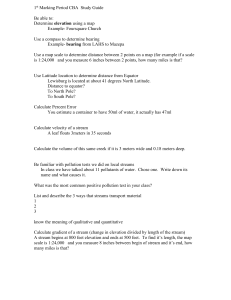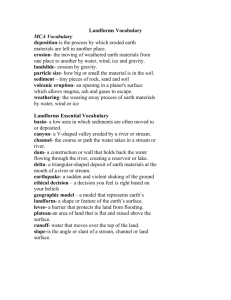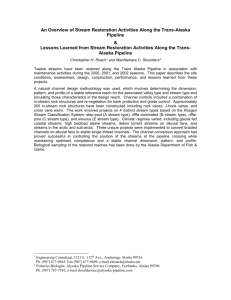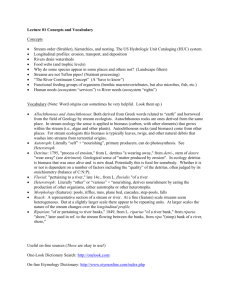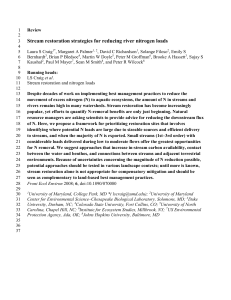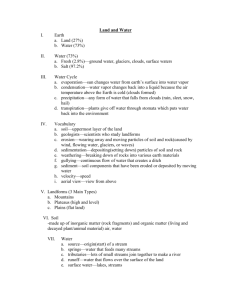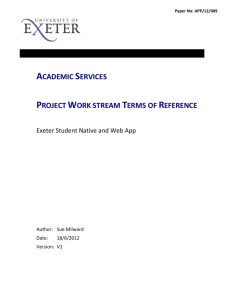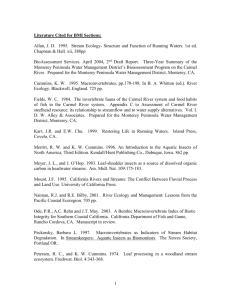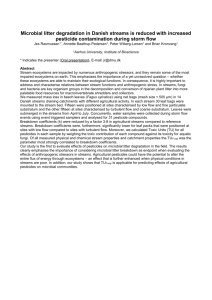12-3-14 Bugs of the Underworld video continued Quiz on Friday
advertisement
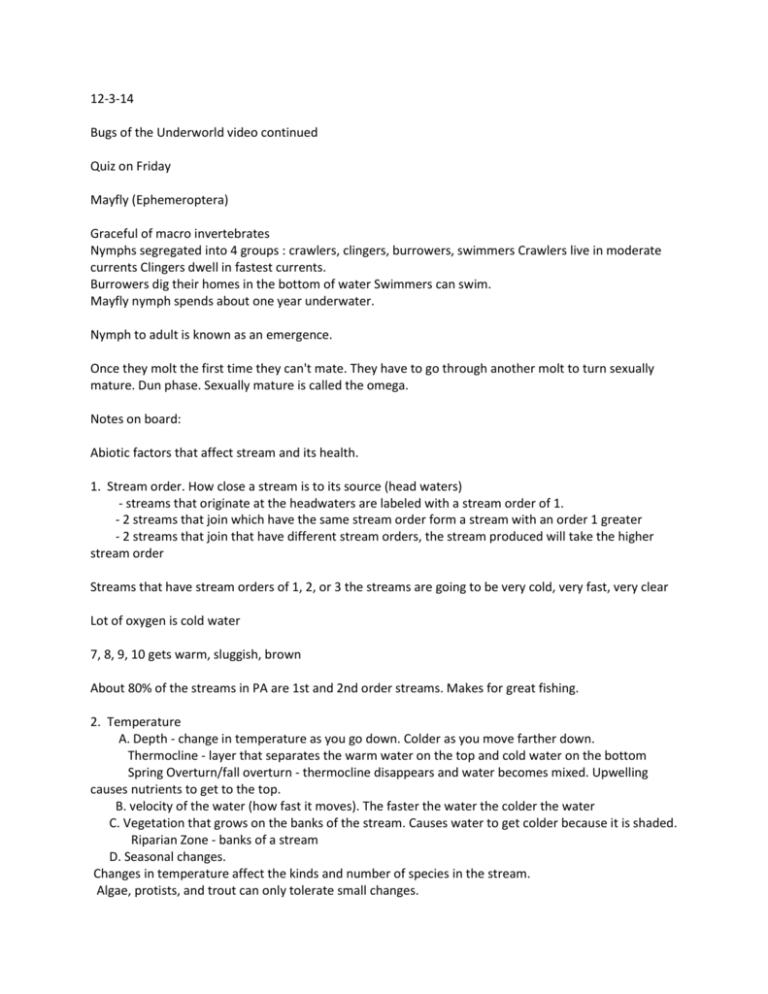
12-3-14 Bugs of the Underworld video continued Quiz on Friday Mayfly (Ephemeroptera) Graceful of macro invertebrates Nymphs segregated into 4 groups : crawlers, clingers, burrowers, swimmers Crawlers live in moderate currents Clingers dwell in fastest currents. Burrowers dig their homes in the bottom of water Swimmers can swim. Mayfly nymph spends about one year underwater. Nymph to adult is known as an emergence. Once they molt the first time they can't mate. They have to go through another molt to turn sexually mature. Dun phase. Sexually mature is called the omega. Notes on board: Abiotic factors that affect stream and its health. 1. Stream order. How close a stream is to its source (head waters) - streams that originate at the headwaters are labeled with a stream order of 1. - 2 streams that join which have the same stream order form a stream with an order 1 greater - 2 streams that join that have different stream orders, the stream produced will take the higher stream order Streams that have stream orders of 1, 2, or 3 the streams are going to be very cold, very fast, very clear Lot of oxygen is cold water 7, 8, 9, 10 gets warm, sluggish, brown About 80% of the streams in PA are 1st and 2nd order streams. Makes for great fishing. 2. Temperature A. Depth - change in temperature as you go down. Colder as you move farther down. Thermocline - layer that separates the warm water on the top and cold water on the bottom Spring Overturn/fall overturn - thermocline disappears and water becomes mixed. Upwelling causes nutrients to get to the top. B. velocity of the water (how fast it moves). The faster the water the colder the water C. Vegetation that grows on the banks of the stream. Causes water to get colder because it is shaded. Riparian Zone - banks of a stream D. Seasonal changes. Changes in temperature affect the kinds and number of species in the stream. Algae, protists, and trout can only tolerate small changes. Carp and catfish have a wide range. Can tolerate very warm temps or very cold temps.
